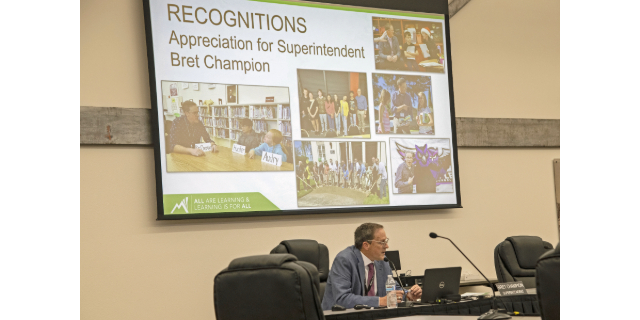LETTERS TO THE EDITOR: Concert perfume, OSF advertising, the environment
Published 6:00 am Thursday, August 29, 2024

- LETTERS LOGO (NEW)
Wafting perfume ruined the concert
I recently attended a fantastic movie-themed concert at the Craterian, by our fantastic RV Symphony. I was in a great seat, Row J, Seat 1 (middle). Right before showtime, a couple came and sat in the middle of row I, right in front of us. Within 30 seconds, the woman’s perfume started wafting all around her, and not long after that I developed a headache that lasted the entire concert. I resorted to holding a tissue over my nose, and every so often fanning the fumes back towards her with my program.
I am writing this in hopes that she, and other perfume wearers will consider the fact that there are many of us who not only don’t appreciate their choice of scent, we are sensitive to it, and we suffer because of it.
Please, be kind and do not wear perfume in a crowd! Thank you very much.
Katharine Lang / Ashland
OSF and center spread advertising
For the second time in as many weeks, the Oregon Shakespeare Festival has printed a center spread advertisement in the San Francisco Chronicle.
While one doesn’t question the use of advertising, one notes that in the years when OSF produced quality plays, did not dumb down its offerings, did not turn almost every play into a musical, and did not attempt to ban books, such advertising wasn’t needed. Urban newspapers on their own volition printed reviews of the plays in Ashland — generally heartily approving.
It should be instructive to the current OSF Board and administration that a return to quality might be more profitable, more successful and more worthy of its mission — not to mention more interesting for its patrons.
Mary Tsui / Talent
Environmentalists need to speak up
After working on advocacy for good forest management for many years and testifying in congress over 10 times, I read with interest the Letter to the Editor written by Blair Moody about NEPA litigation. I experienced over the years that not only did the litigation stall and delay necessary forest management (which would have reduced intensity and severity of fires), but it discouraged agencies from even producing good thinning projects and enhancements because they saw it would take years to get through the process and be very costly with almost no success.
I agree that some environmental groups with their lawsuits have contributed to the poor condition of our forests making forests more vulnerable to disease and severe fires.
I urge the true environmentalists who understand the role of active forest management in saving our forests to speak up.
Sue Kupillas / Medford







